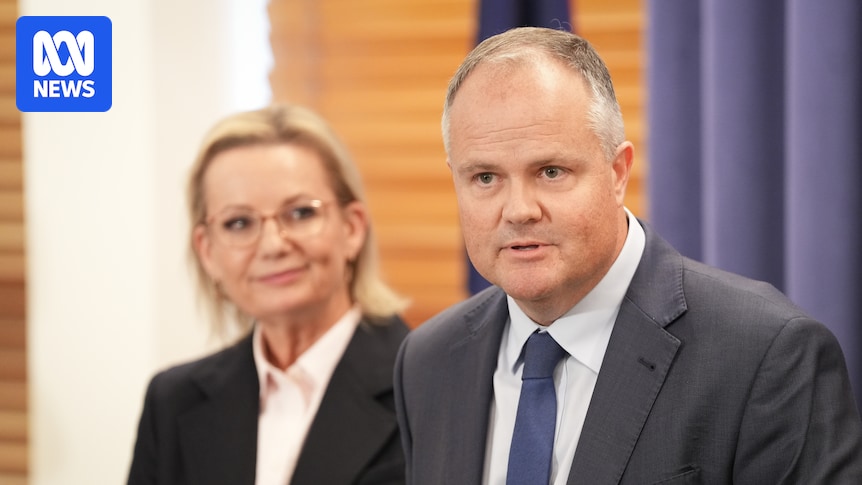The coalition said it is ready to revisit NDIS spending for a second time after the prime minister may need further savings.
Earlier this month, Prime Minister Anthony Albanese said his administration “will always hope that spending will generate better value” after he was asked whether he would revisit NDIS spending, which is expected to cost $64 billion a year by 2029.
“We need to make sure that it’s more sustainable… The vision of NDI is not the kind of figure you just quoted,” he said.
“But you have to be responsible for the way you work and work with the industry because vulnerable people feel that their support is under threat. We don’t want that.”
Prime Minister Anthony Albanes said his administration will continue to pursue “better value” in NDIS spending. ((AAP Image: Lukas Coch)
When asked if the league was ready to conduct a dialogue with the government this morning for further reforms to cut costs, shadow treasurer Ted O’Brien replied: “Yes, we will.”
“Let’s see what the government brings. But that’s definitely the key to their having to stop spending,” O’Brien told Sky News.
Last semester, the government and opposition acknowledged that the cost of NDI was rising so rapidly that it would quickly become “unsustainable” if it remained unchanged.
The major political parties agreed to a series of reforms aimed at reducing their growth costs from 13.8% per year to 8% in 2026.
These changes set stricter rules, dictate how support is available, how programs are managed, and lay the foundation for new programs run by states that can support certain moderately disabled people who join NDIS without more appropriate support.
These reforms are expected to save $19.3 billion in budget over four years.
However, despite the cost drop, the latest NDI data shows that the program’s expenses have increased by 10.6% per year despite the decline in costs. – It is expected to achieve the government’s goals, but it is still far higher than the government’s goals.
Government seeks budget repairs
The federal budget is expected to remain deficit over the next decade.
The ABC revealed last week that the leaked Treasury Department advised Jim Chalmers to warn that the budget cannot be determined without increasing taxes and reducing spending.
After gaining a dominant majority in parliament, the workforce turned its thinking toward how to restructure the budget and put it on a more sustainable trajectory.
The treasurer said he was ready to lose some political skin.
“I personally want to master nettles…I’m ready to work hard,” Chalmers said in a speech to the National News Club last month.
O’Brien said on Sky News that all options should remain on the table for the upcoming productivity roundtable, with issues of tax reform and budget determination that will be involved.
Mr Albanes said the government has not considered a proposal to raise the GST in exchange for a proposal to lower the income tax, a move that would allow individuals to pay how much tax.
Mr O’Brien warned the government not to dismiss the idea.
“The Prime Minister and the Treasury claim to be open to everything, but since then we actually found out: ‘We have an open mind, but we don’t want to talk about labor relations. We are open to taxes, but we don’t want to talk about GST.” So I’m worried that Labor may actually have an agenda here, and it’s just a conversation festival,” he said.
“(We support tax reform), if you are doing tax reform overall, if you are considering more effective taxes, if you are considering solving the current confusion about labor, then the labor force is too dependent on income tax.”
